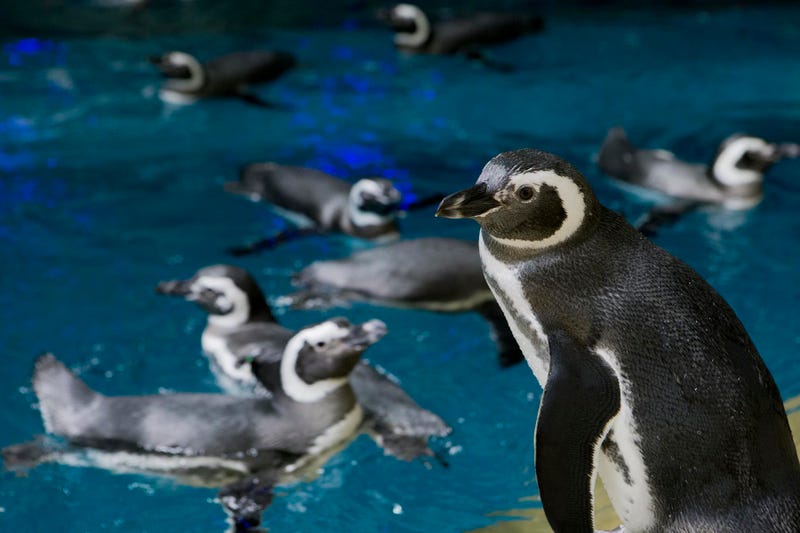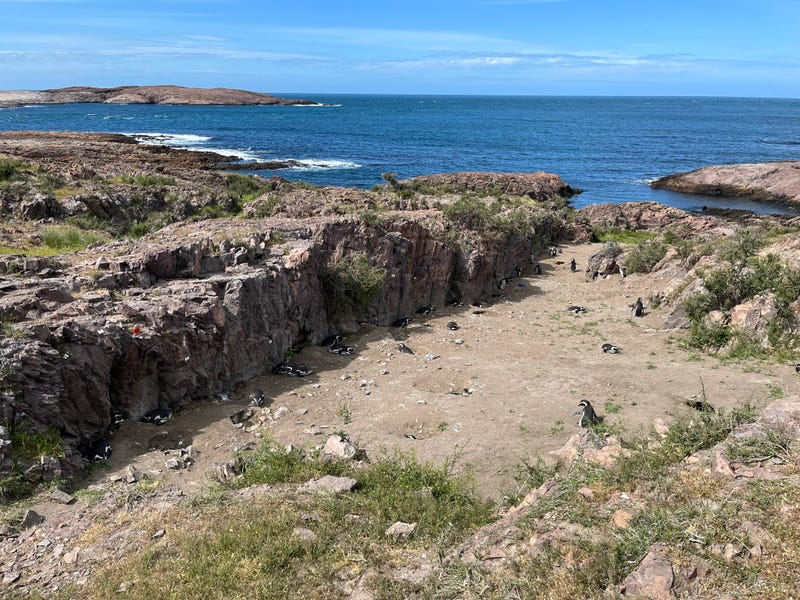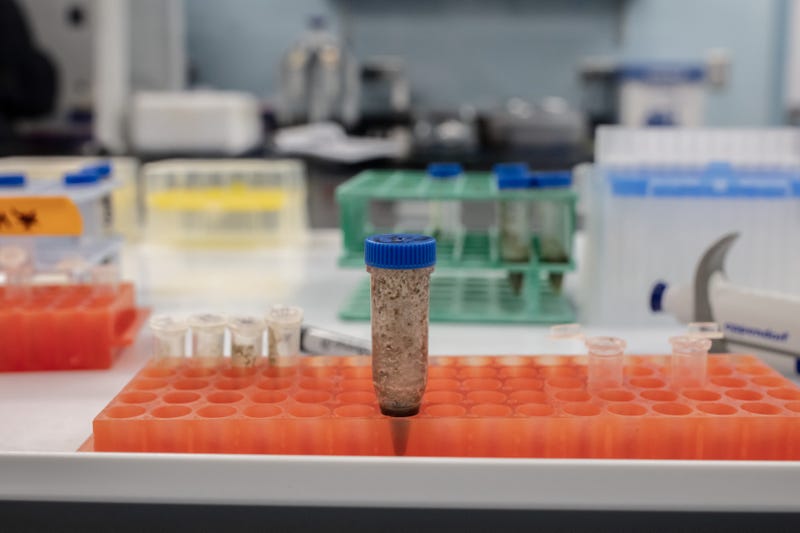
CHICAGO (WBBM NEWSRADIO) — Two members of the Shedd Aquarium’s animal care team have come back to Chicago after a two-week journey to Patagonia, where they were researching Magellanic penguins.
Or, more specifically, what comes out of Magellanic penguins.
Over the course of their stay in South America, animal care team members Megan Vens-Policky and Tracy Deakins were among researchers who collected over 150 samples of penguin poop.
"Each and every day we were going out to the colony, monitoring the penguin nests, setting up our guano collection devices so we can collect those guano samples and also monitoring the size and the area of the colony so that they could make the best estimates of this year's population census," said Vens-Policky.
She said the samples can reveal a lot about these penguins, which can then help her and her team in their conservation efforts.
"Once we know what they're eating, we can decide how to best protect that food source and have a better understanding of how climate change affects those prey items, which then affects the penguins."
Back in Chicago, the hope is that scientists at the Shedd, led by lab manager Frank Oliaro, will be able to determine which prey Magellanic penguins feed on — all from those fecal samples.
By doing that, researchers hope they can determine new ways to protect the prey, and therefore protect the food supply for Magellanic penguins.

“More than half of the penguins in the world are in danger of extinction, so we want to give them the best chance at survival that we can, and one way to start that is by understanding the factors that limit their access to adequate food sources,” said Dr. Marcela Uhart.
Uhart is s a research partner at University of California-Davis. The Shedd is partnering with UC-Davis and the Argentinian National Research Council’s Center for the Study of Marine Systems.

The Shedd was chosen as a research partner, in part, because it cares for a population of Magellanic penguins every day in Chicago. The aquarium’s colony can help validate the research methods by acting as a control group.
Specifically, the control group here in Chicago will be fed a different mixture of fish, squid, and shrimp over the course of several days. The poop from the control group will be compared with the guano gathered in South America.

In its press release, the Shedd said it will take several years of data to get a better idea of the penguins’ diets.
Contributing: Reporter Carolina Garibay
Listen to WBBM Newsradio now on Audacy!


